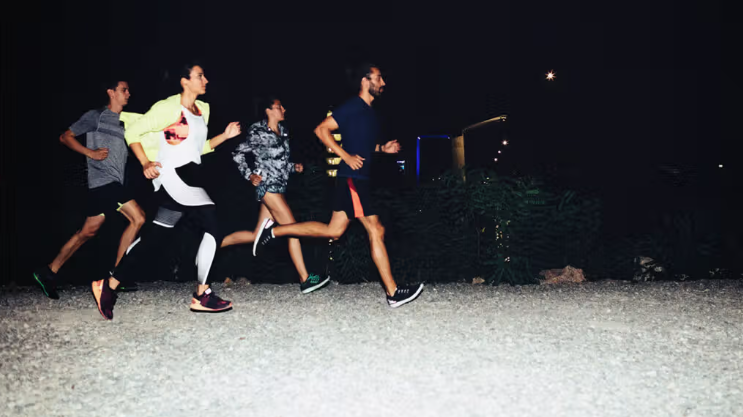Evening exercise best for blood sugar control?
The study participants undertook an average of 24 minutes of moderate-to-vigorous physical activity per day.
The researchers first noted that their findings reinforced the established link between moderate-to-vigorous physical activity and stabilized glucose metabolism.
The 24-hour average glucose reading for the participants was approximately 1 milligram per deciliter (mg/dL) lower on somewhat active days, and around 1.5 mg/dL lower on very active days compared with inactive days.
When looking at whether the timing of moderate-to-vigorous physical activity impacted glucose levels, the scientists found an association between completing activity in the evening and lower blood glucose levels.
The 24-hour average glucose reading for the participants who completed their moderate-to-vigorous physical activity during the evening was 1.28 mg/dL lower compared with the reading for inactive participants.
Those who completed most of their moderate-to-vigorous physical activity in the morning or whose activity was spread out across the day did not show statistically different glucose levels compared with the inactive participants.
For the afternoon group, the participants experienced a reduction of 0.98 mg/dL.
“The present study shows that the timing of lifestyle moderate-to-vigorous physical activity is significant and that accumulating most moderate-to-vigorous physical activity during the evening is associated with lower glucose levels in adults with overweight/obesity and metabolic impairments,” write the authors.
Furthermore, the researchers found that this association in participants with impaired glucose regulation was even “stronger.”
Another promising finding was that the results were consistent in both women and men.
While further studies are needed to explore this, this association may help give people with type 2 diabetes or insulin resistance an idea of how to maximize the benefits of their physical activity.
Any activity helpful for blood sugar control
Robert McLaughlin, MD, a board-certified orthopedic surgeon based in Boston, not involved in this research, spoke with Medical News Today about its findings.
“This study provides valuable insight into the timing of exercise and its impacts on glucose regulation, shedding light on an often overlooked aspect,” McLaughlin said.
He noted that the results were “surprising, yet intriguing,” adding that:
“While we generally understand the benefits of exercise for glucose metabolism, the idea that timing can enhance these effects adds a new dimension to exercise prescription. This could lead to more effective management strategies for metabolic disorders.”
However, McLaughlin was quick to warn people not to drop exercise during other times of the day.
“It’s essential for the audience to understand that these results should not discourage morning exercise, which still offers significant health benefits,” emphasized McLaughlin. “The key takeaway is that if you have the flexibility, incorporating evening workouts could provide additional metabolic advantages, particularly for those managing insulin resistance or diabetes.”
The goal is regular moderate-to-vigorous exercise
Shiara Ortiz-Pujols, MD, MPH, who works in obesity medicine in the Department of Surgery at Staten Island University Hospital in New York, also spoke with MNT about the study. Like McLaughlin, she was not involved in this research.
“The study further supported that any physical activity that can be accumulated throughout the day is beneficial, with a more significant impact on glucose regulation if done in the evening hours,” said Ortiz-Pujols.
She also emphasized the importance of getting in some physical activity whenever possible.
“Although exercising in the evening may be better to [regulate glucose metabolism] in adults with overweight/obesity, schedules may not always permit this for everyone,” Ortiz-Pujols noted.
“The primary goal is to engage in regular moderate-to-vigorous physical activity,” commented Ortiz-Pujols. “Once we have a regular routine of doing this, then we can aim to exercise in the evening to further optimize glucose regulation.”

1 thought on “When is it best to exercise in order to maintain healthy blood sugar levels?”